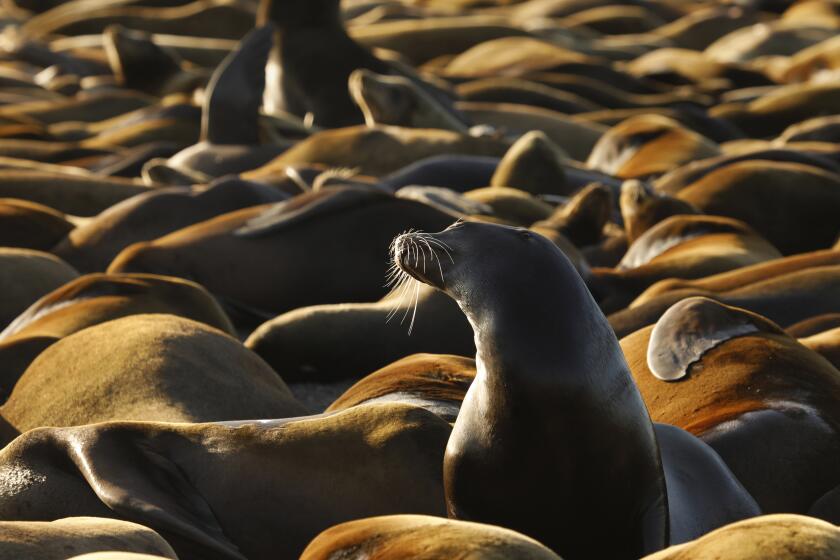Saving the Sea Creatures
The renewal of the Marine Mammals Protection Act is making its way slowly and painfully through Congress. The bill is a tough test of the ability of congressmen to balance commercial interests against obvious needs to protect porpoises, otters, sea lions, polar bears, whales and other ocean mammals. The result will be a measure of congressional wisdom.
Much of the controversy centers on moves to improve the protection of porpoises. An estimated 100,000 are killed each year, trapped and drowned in the nets of yellowtail-tuna fishermen. There is general agreement that more protection is required. But the problem is complicated by the fact that most of the killings are at the hands of foreign fishermen, many of whom do not respect the same regulations applied to the 35 American boats operating in the tropical East Pacific.
The problem was greatly exacerbated by the failure of the Reagan Administration to act. Under legislation adopted in 1984, the Department of Commerce was instructed to draw up regulations to encourage foreign conformity to the rules. But no regulations appeared until last March. In the meantime, American tuna fishermen claimed that they were regularly reducing the ratio of porpoise deaths to tuna tonnage caught. In 1987, 14,000 porpoises died in American nets, and a record 99.34% of the porpoises caught in the nets were setfree. But foreign boats were reported killing at a rate at least four times greater.
Ironclad rules are needed to bar tuna imports not meeting the agreed standards. The standards of the act that will expire at the end of the year also need tightening. There is a need for more inspectors to enforce the rules, for a prohibition of net laying at sunset that raises the porpoise toll, and for additional funding to improve the technology of tuna fishing to reduce markedly the present mortality levels. Implicit in this also is better research, for the fact remains that scientists are not sure of the effect on total porpoise populations. If there is evidence that the survival of any species is in danger, absolute protections will be required.
The legislation affects other commercial interests as well. New reporting regulations will help Pacific fishermen who risk accidentally catching protected mammals in their operations. They will be allowed to maintain their operations in exchange for the full and complete reporting of any mammal catches. Tougher standards are planned for public displays of marine mammals, including regulations directed at resort hotels introducing porpoise rides as an attraction for tourists.
In this particular legislation Congress sets the world standard. That is a further reason for the striking of an appropriate balance that gives due respect to conservation.
More to Read
Get the L.A. Times Politics newsletter
Deeply reported insights into legislation, politics and policy from Sacramento, Washington and beyond. In your inbox three times per week.
You may occasionally receive promotional content from the Los Angeles Times.






